
Hulhumalé Island: The Urban Oasis of Maldives
Hulhumalé Island is an artificial island located in the Maldives. Connected to the capital, Malé, it offers a unique blend of urban development and natural beauty. This island is known for its stunning beaches, modern infrastructure, and eco-friendly initiatives. Its proximity to Malé makes it a convenient getaway for tourists looking to experience both the hustle and bustle of city life and the serene beauty of the Maldives. The island boasts a variety of attractions including the Hulhumalé Central Park, which is perfect for a leisurely stroll. The park is beautifully landscaped and offers a peaceful retreat from the busy city streets. Hulhumalé Beach is another highlight, known for its clear waters and soft sands. It's an ideal spot for swimming, sunbathing, and water sports. For those interested in culture, the island has several mosques and local markets where you can experience the Maldivian way of life. The island is also a gateway for various excursions, including diving and snorkeling trips to nearby reefs. Hulhumalé is well-connected by public transport, making it easy to explore all that this vibrant island has to offer.
Local tips in Hulhumalé Island
- Plan your visit to Hulhumalé Central Park early in the morning or late afternoon to avoid the heat.
- Carry some local currency for shopping at the local markets as not all vendors accept cards.
- Use the public bus service for an affordable way to explore the island.
- Visit Hulhumalé Beach during weekdays for a quieter experience.
- Book diving and snorkeling trips in advance to secure your spot.
Hulhumalé Island: The Urban Oasis of Maldives
Hulhumalé Island is an artificial island located in the Maldives. Connected to the capital, Malé, it offers a unique blend of urban development and natural beauty. This island is known for its stunning beaches, modern infrastructure, and eco-friendly initiatives. Its proximity to Malé makes it a convenient getaway for tourists looking to experience both the hustle and bustle of city life and the serene beauty of the Maldives. The island boasts a variety of attractions including the Hulhumalé Central Park, which is perfect for a leisurely stroll. The park is beautifully landscaped and offers a peaceful retreat from the busy city streets. Hulhumalé Beach is another highlight, known for its clear waters and soft sands. It's an ideal spot for swimming, sunbathing, and water sports. For those interested in culture, the island has several mosques and local markets where you can experience the Maldivian way of life. The island is also a gateway for various excursions, including diving and snorkeling trips to nearby reefs. Hulhumalé is well-connected by public transport, making it easy to explore all that this vibrant island has to offer.
When is the best time to go to Hulhumalé Island?
Iconic landmarks you can’t miss
Bombay Darbar
Experience authentic Indian cuisine in the Maldives. Bombay Darbar offers a diverse menu of flavorful dishes in a welcoming atmosphere.
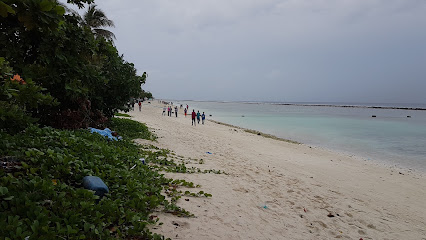
Central Park (Hulhumalé)
Escape to Hulhumalé's vibrant Central Park: a green oasis offering recreation, relaxation, and community events.
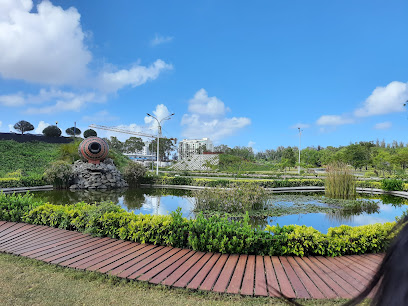
h78 Maldives
Experience beachfront bliss at h78 Maldives in Hulhumalé: stunning views, exceptional service, and unforgettable moments by the sea.

Hulhumale
Discover Hulhumale, Maldives: An urban island paradise with beautiful beaches, water sports, and a unique cultural experience.
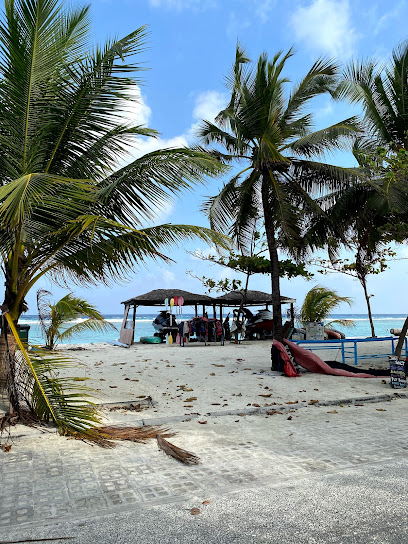
Republic Square
Experience the serenity and cultural richness of Republic Square, a beautiful city park in the heart of Malé, Maldives, perfect for relaxation and exploration.
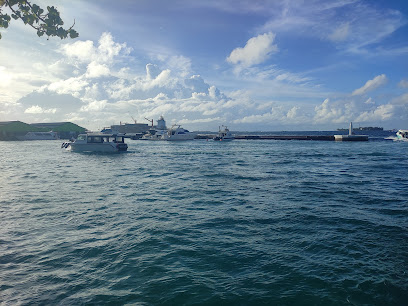
Hotel Ocean Grand at Hulhumale
Experience beachfront luxury and convenience at Hotel Ocean Grand Hulhumale, your gateway to the Maldives.
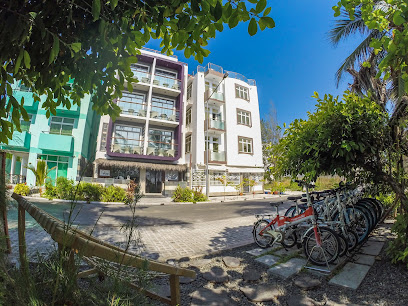
UI Hotels
Experience the Maldives affordably at UI Hotels in Hulhumalé: comfort, convenience, and friendly service near the airport and beach.

Huvan Beach Hotel
Beachfront comfort in Hulhumalé, Maldives. Enjoy stunning views, island exploration, and a relaxing stay near local attractions.

Turquoise Residence by UI
Comfortable and convenient 3-star hotel in Hulhumale, Maldives, offering easy access to the beach and local attractions.
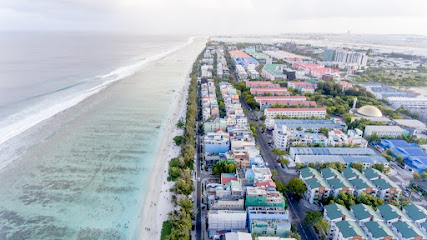
Hulhumale Watersports Club & Excursions/Seaholics Maldives/surf school
Experience thrilling water sports and unforgettable excursions in the heart of Hulhumale with Seaholics Maldives.
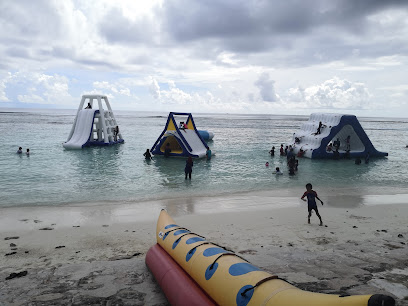
Vista Beach Retreat
Experience beachfront bliss at Vista Beach Retreat in Hulhumalé: Comfort, convenience, and captivating ocean views await!

Hulhumale Public Beach
Experience the beauty of the Maldives on Hulhumale Public Beach, a perfect blend of relaxation, recreation, and local culture.
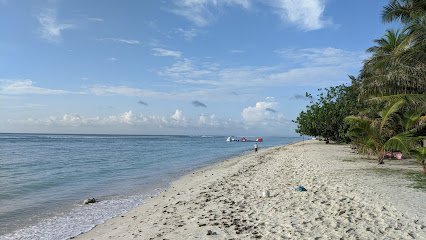
Tsunami Monument
A solemn tribute to the victims of the 2004 tsunami, symbolizing resilience and unity in the heart of Malé, Maldives.
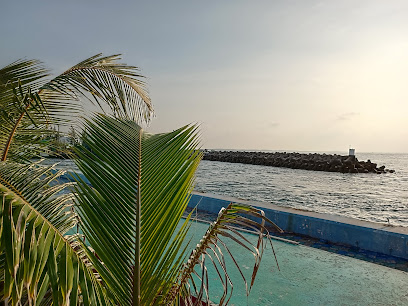
The White Harp Beach Hotel
Experience beachfront tranquility and Maldivian charm at The White Harp Beach Hotel in Hulhumalé.
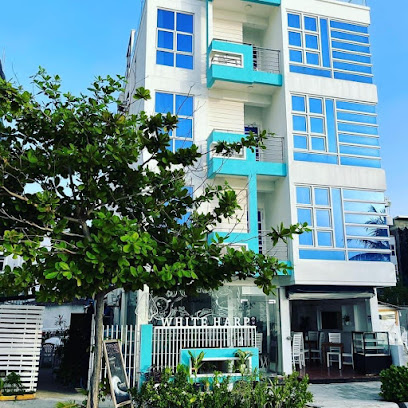
Schwack Cinema Hulhumale'
Experience the magic of cinema at Schwack Cinema Hulhumale', the only public movie theater in the Maldives, showing the latest Hollywood & Bollywood films.
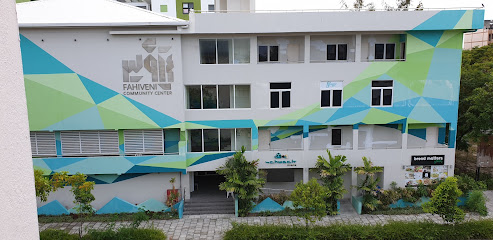
Unmissable attractions to see
Artificial Beach
Discover the unique blend of urban life and beach relaxation at Malé's Artificial Beach, a must-visit destination in the Maldives.
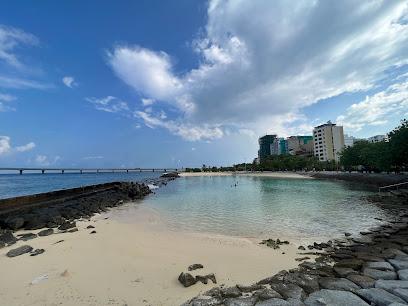
Tsunami Monument
Explore the Tsunami Monument in Malé, a powerful historical landmark reflecting resilience and remembrance in the Maldives.
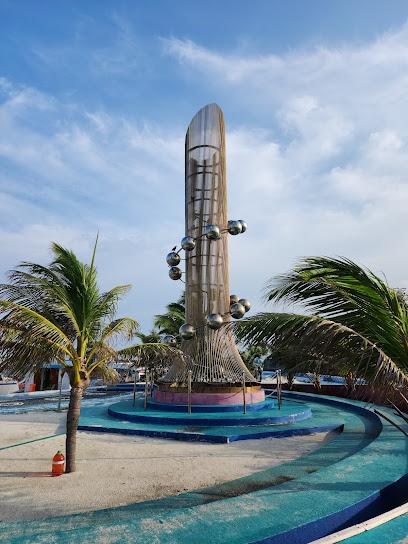
Lonuziyaaraiy Park
Discover tranquility at Lonuziyaaraiy Park, an urban oasis in Malé, featuring lush greenery, a serene pond, and a vibrant atmosphere perfect for relaxation.
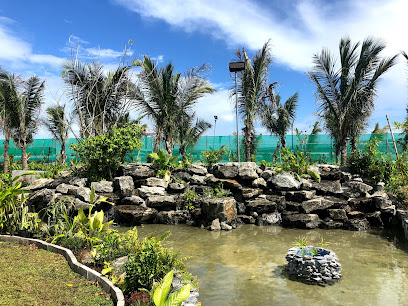
Victory Monument
Discover the significance of the Victory Monument in Malé, a serene memorial park celebrating the Maldives' spirit of freedom and resilience.
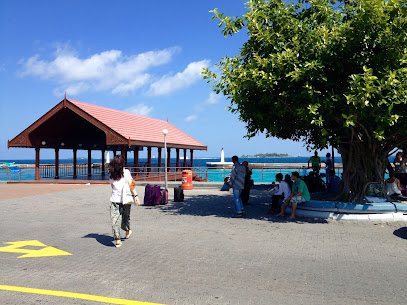
Furuba Beach by Dive Club Maldives
Explore the stunning Furuba Beach in Hulhumalé, Maldives, a perfect destination for relaxation, adventure, and unforgettable marine experiences.
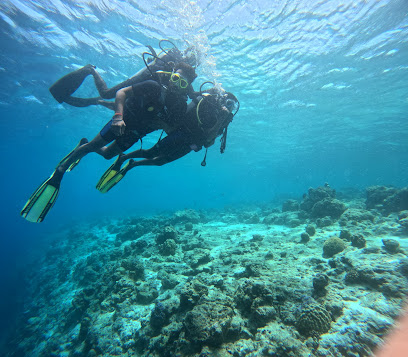
Madi Miyaru Kanmathi
Explore Madi Miyaru Kanmathi in Malé, a serene tourist attraction blending natural beauty with local culture for an unforgettable Maldivian experience.
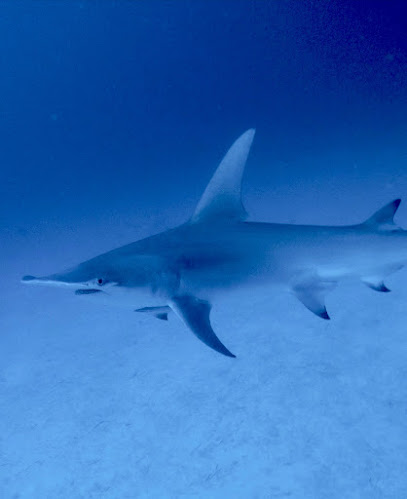
Fehires Park
Explore the beauty and serenity of Fehires Park in Hulhumalé, where lush landscapes and tranquil pathways await your discovery.
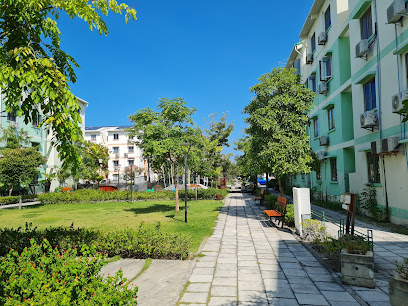
Dhiraagu Antenna Children's Park
Discover the tranquility of Dhiraagu Antenna Children's Park in Malé – a perfect family retreat with lush green spaces and playful attractions.
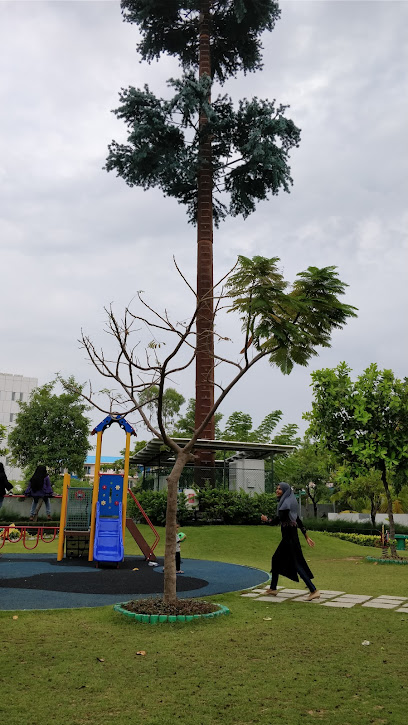
Muhammadhu Thila
Explore the breathtaking underwater landscapes of Muhammadhu Thila, a premier diving destination in the Maldives, teeming with marine life.
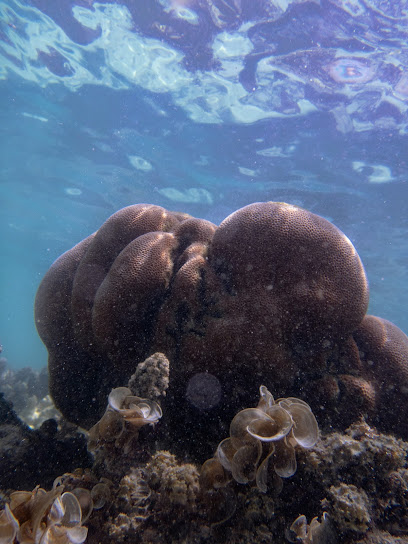
NORTH KITE BEACH.
Experience the breathtaking beauty and thrilling watersports at North Kite Beach, a must-visit destination in the Maldives.
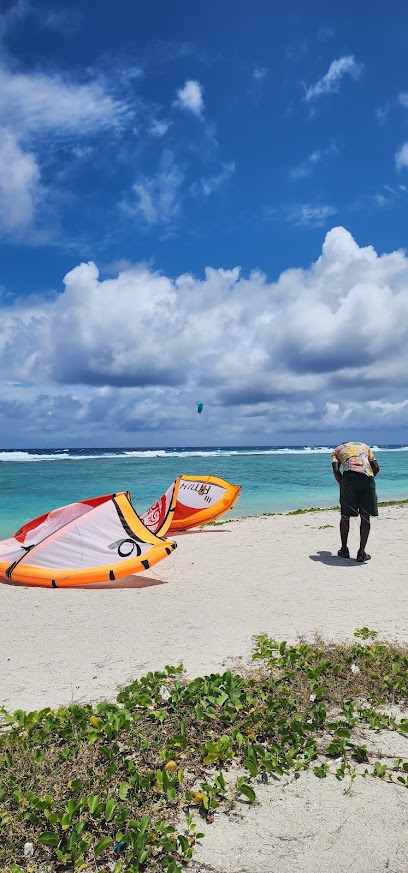
Fountain Bridge
Explore the beauty and vibrant culture of Fountain Bridge in Malé, a must-visit tourist attraction in the heart of the Maldives.
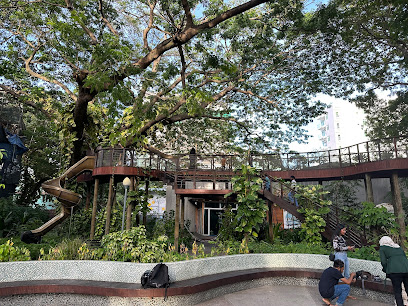
Lookout Point
Discover the breathtaking views and serene atmosphere of Lookout Point, a must-visit hiking area in Malé for nature enthusiasts and travelers.
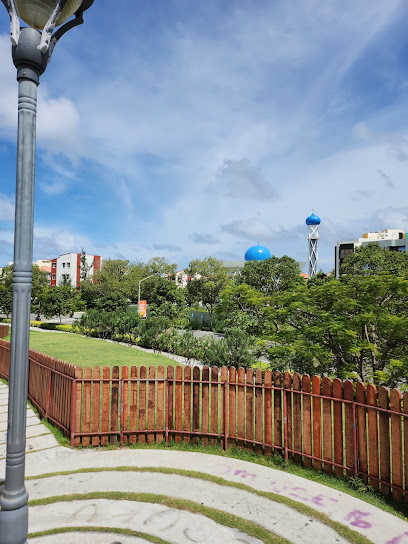
Hulhumalé Ruh'gandu 2
Explore the lush landscapes and serene atmosphere of Hulhumalé Ruh'gandu 2 Park, a perfect retreat in the vibrant city of Malé.
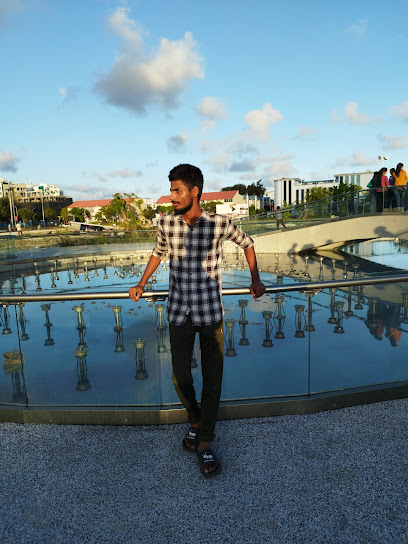
Shark Tank, Maldives
Experience the thrill of seeing sharks up close at the Shark Tank, a premier marine attraction in the heart of the Maldives.
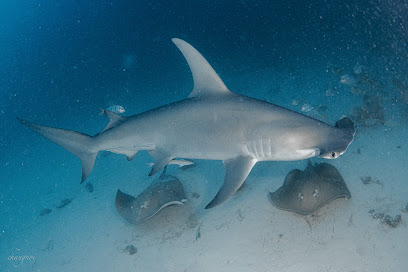
North Side Beach
Discover the tranquil beauty of North Side Beach in Malé, where pristine sands and crystal-clear waters await your arrival.
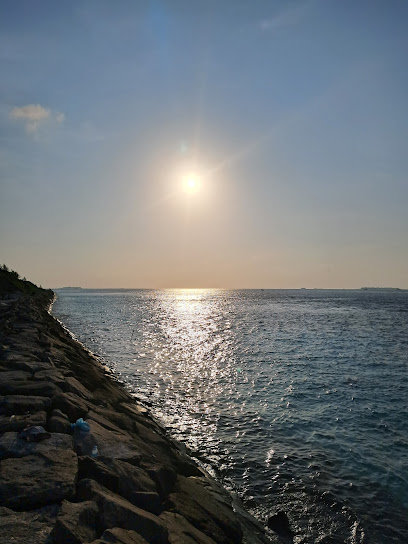
Essential places to dine
Bombay Darbar
Experience authentic Indian cuisine at Bombay Darbar in Hulhumalé, where every dish tells a story of rich flavors and vibrant culture.
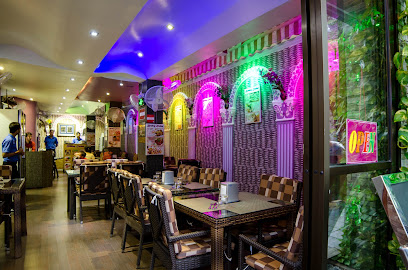
Naga's Indian Restaurant
Experience authentic Indian flavors at Naga's Indian Restaurant in Hulhumalé, Maldives - a culinary delight awaits you!
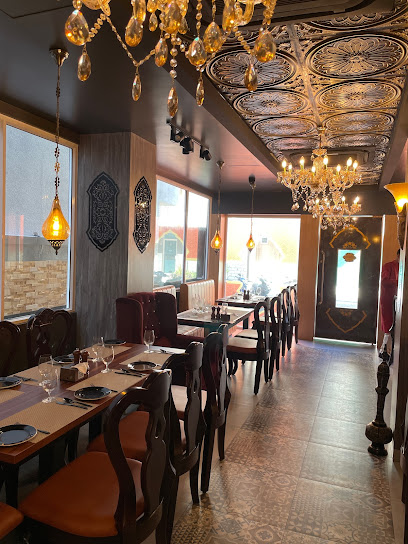
Lazeez Gourmet
Experience the best of Arabic cuisine at Lazeez Gourmet in Hulhumalé - where flavor meets elegance.
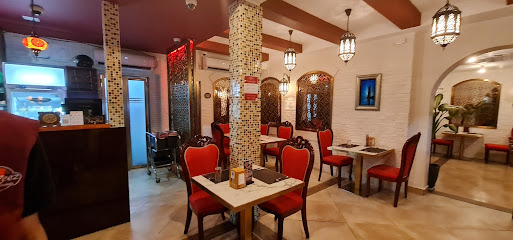
Papa Sam's
Discover delightful Maldivian cuisine at Papa Sam's, where every dish tells a story of flavor and tradition in a charming setting.
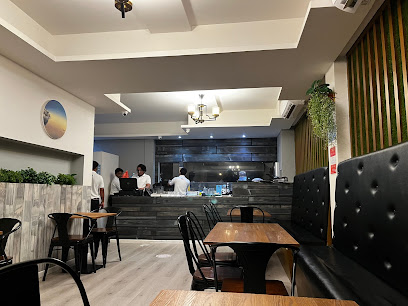
Khanji Maldives
Discover authentic Pakistani barbecue delights at Khanji Maldives in Hulhumalé – where every meal is a celebration of flavor.
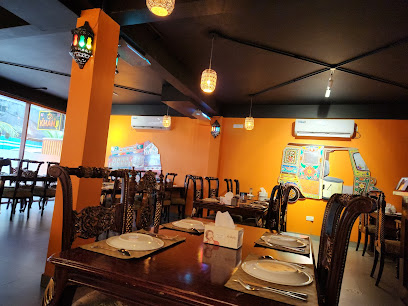
Coba Cabana
Discover the rich flavors of Maldivian cuisine at Coba Cabana in Hulhumalé - where every meal is an experience.
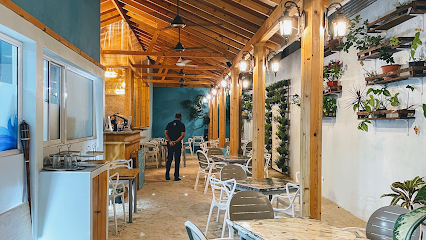
Dinemore Hulhumale'
Discover Dinemore Hulhumale': A beachfront culinary gem offering diverse flavors and unforgettable ocean views in the Maldives.
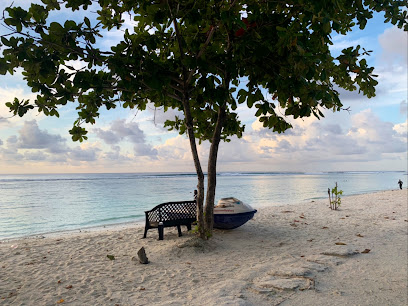
Thai Palace Restaurant
Experience the essence of Thailand at Thai Palace Restaurant in Hulhumalé – where authentic flavors meet fine dining.
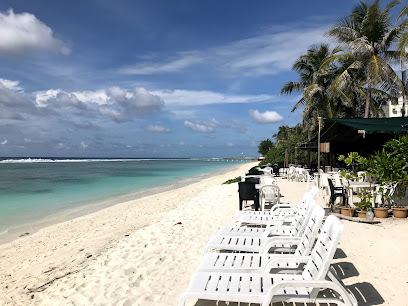
Pilawoos Hulhumalé
Experience authentic Maldivian flavors at Pilawoos Hulhumalé – a culinary gem where tradition meets taste.
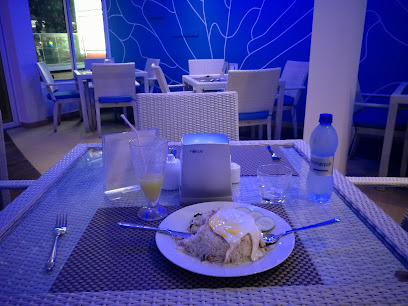
Bells and Peppers Restaurant
Discover culinary delights at Bells and Peppers Restaurant in Hulhumalé—where family-friendly dining meets Maldivian flavors.
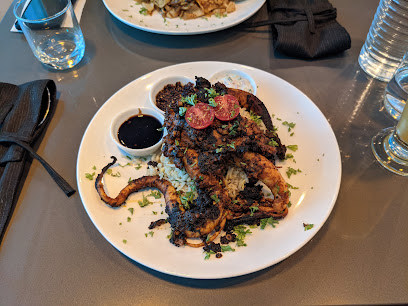
Yellowfin Dine-in
Experience unparalleled flavors at Yellowfin Dine-in - your go-to destination for fresh seafood and delightful Maldivian cuisine.
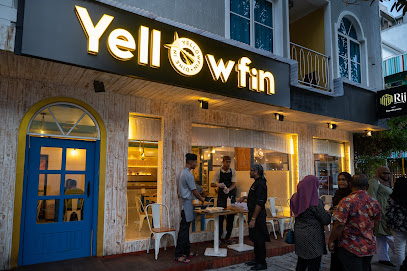
King's Garden Restaurant
Discover exquisite dining at King's Garden Restaurant in Hulhumalé – where local flavors meet international cuisine.
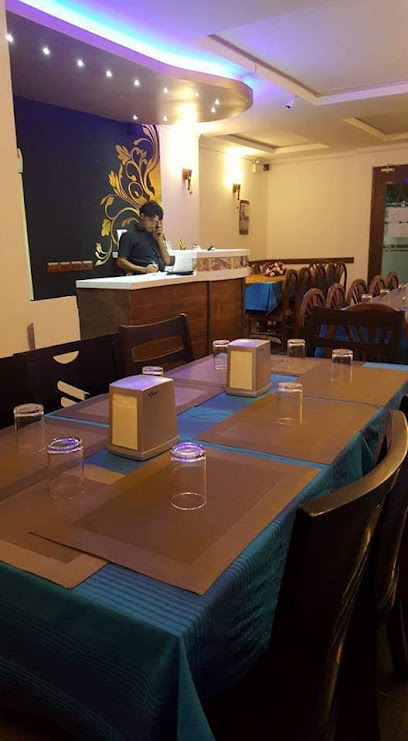
MINUTIAE_MV
Experience exquisite flavors at MINUTIAE_MV in Malé – where local cuisine meets international flair in a cozy setting.
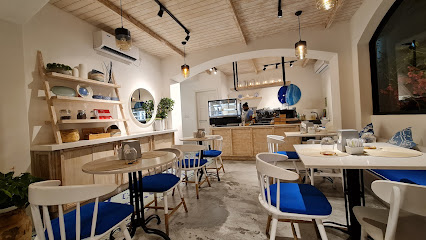
The Keyolhu
Experience exquisite Japanese and Thai cuisine at The Keyolhu, a fine dining restaurant in Hulhumalé offering fresh seafood delicacies.
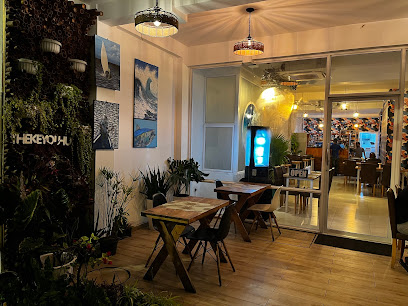
THE ISLAND KITCHEN by Ellies
Experience exquisite Western cuisine at The Island Kitchen by Ellies in Malé - a must-visit for food enthusiasts exploring the Maldives.
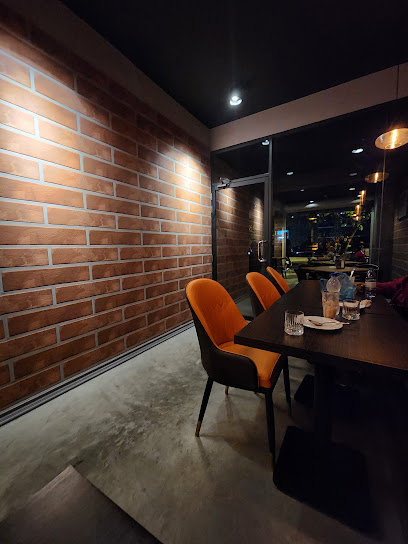
Markets, malls and hidden boutiques
Hudhumaa
Explore the vibrant fashion scene at Hudhumaa in Hulhumalé, where style meets affordability in the heart of the Maldives.
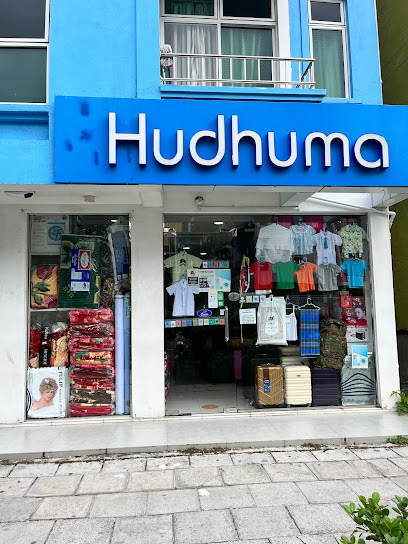
Novelty Bookshop Hulhumale'
Explore a treasure trove of literature and unique gifts at Novelty Bookshop in Hulhumale', a haven for book lovers visiting the Maldives.
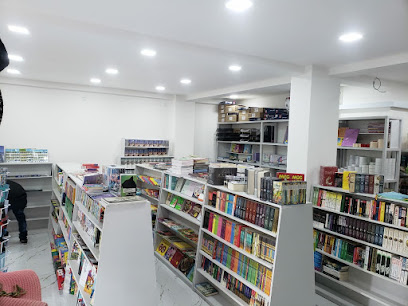
Jilbaab Hulhumale'
Discover the essence of Maldivian fashion at Jilbaab Hulhumale', where tradition meets contemporary style in a vibrant shopping experience.
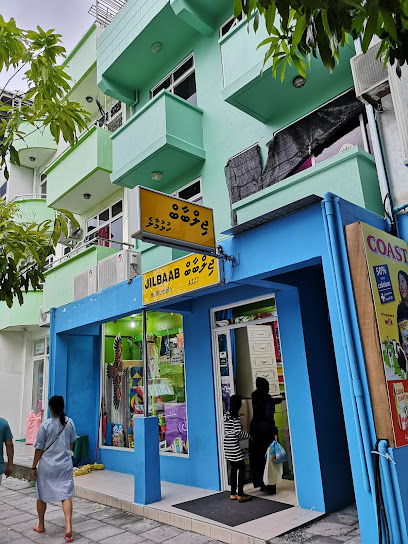
La Perla
Discover unique Maldivian fashion at La Perla in Hulhumalé, where style meets local culture and creativity.
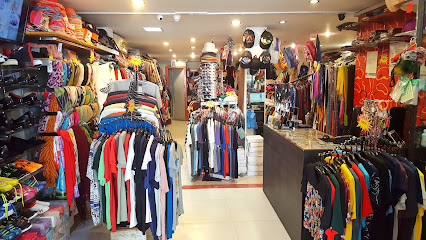
The Guest
Explore 'The Guest' in Malé for luxurious linens and home textiles that embody elegance and craftsmanship, perfect for souvenirs or home decor.
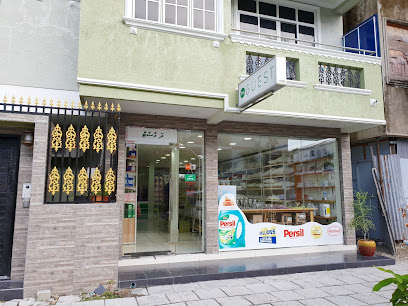
Mix Foshi
Explore the stylish Mix Foshi in Hulhumalé for trendy clothing and unique local styles that enhance your travel experience in the Maldives.
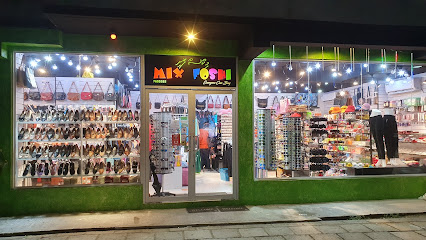
Euro Store
Explore local flavors and global tastes at Euro Store, your essential grocery stop in the vibrant Centro Mall of Hulhumalé.
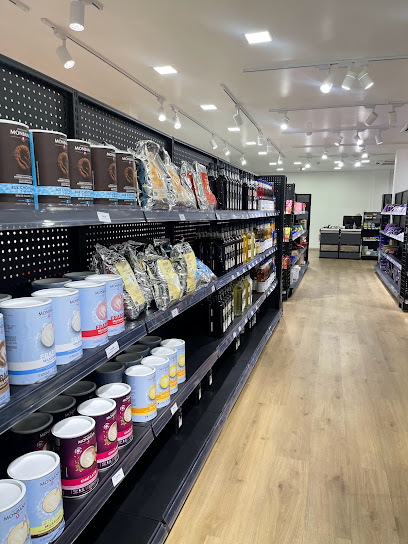
Berry Collection at Hulhumale
Shop for the finest baby essentials at Berry Collection in Hulhumale, Maldives, where quality meets style for your little ones.
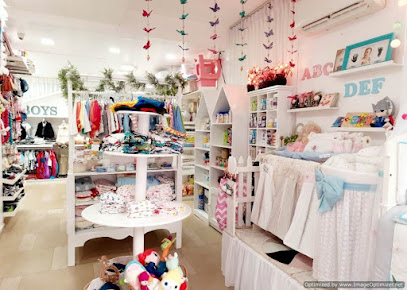
Miniso
Explore Miniso in Hulhumalé, a variety store offering trendy cosmetics, fun toys, and unique finds for everyone in the family.
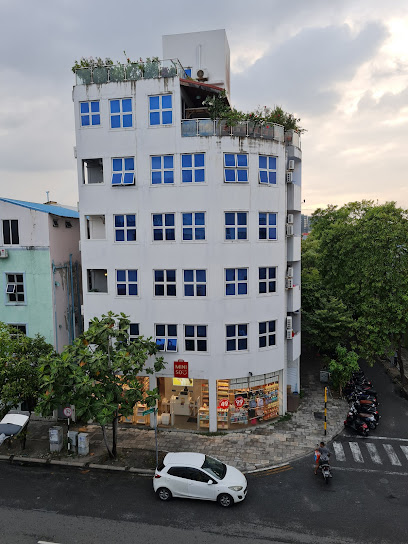
Lily Shop Hulhumale'
Explore Lily Shop in Hulhumale' for a delightful selection of home goods and local essentials, embracing the Maldivian lifestyle.
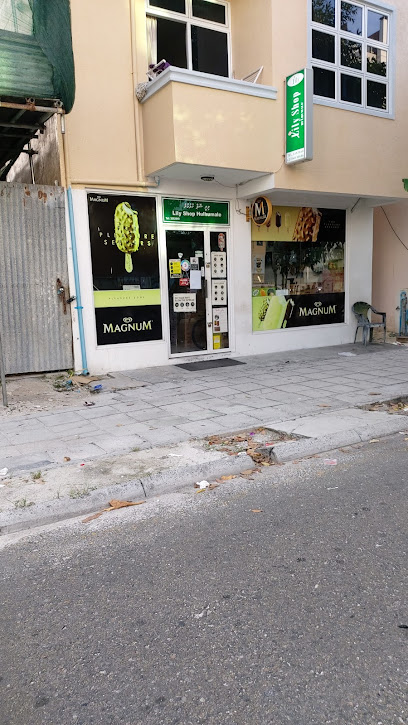
Little Boutique
Explore Little Boutique in Malé for the best selection of baby clothing and accessories that blend style and comfort in the heart of the Maldives.
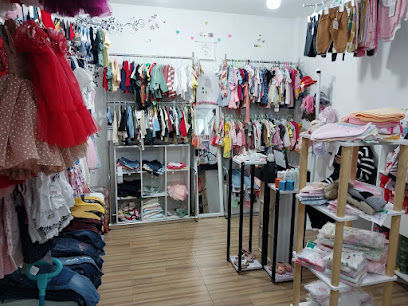
The Range
Discover unique Maldivian clothing at The Range in Hulhumalé, where fashion meets the vibrant spirit of the islands.
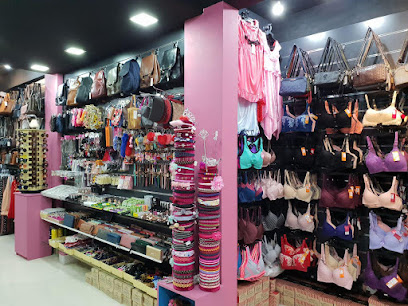
Ravel
Explore Ravel in Hulhumalé for a delightful selection of premium cosmetics and skincare products that reflect the beauty of the Maldives.
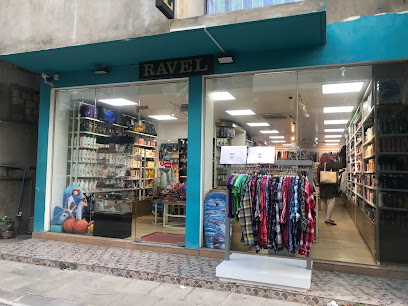
Sign craft
Explore Sign Craft in Malé for unique handmade souvenirs showcasing the rich artistry and culture of the Maldives.
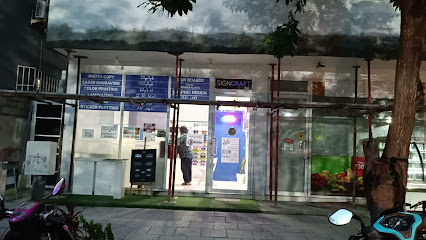
SEE U
Explore SEE U in Hulhumalé for a unique shopping experience, blending local culture with trendy fashion in a vibrant atmosphere.
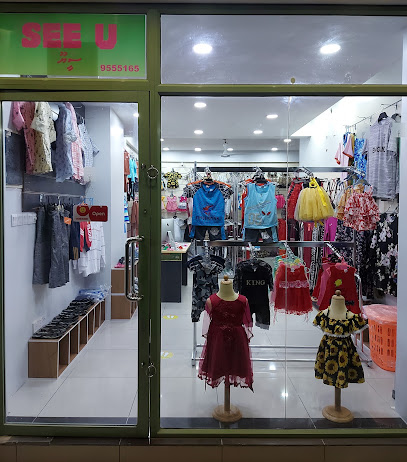
Essential bars & hidden hideouts
Papa Sam's
Experience the culinary fusion of local and international flavors at Papa Sam's in Hulhumalé, a must-visit restaurant for every traveler.
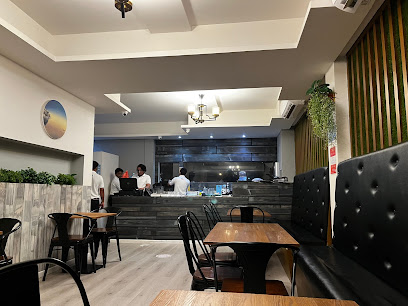
MACL Business Lounge
Discover the tranquil MACL Business Lounge in Hulhule, a perfect haven for travelers seeking comfort and convenience at the airport.
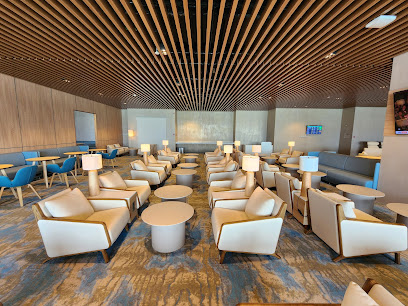
Coral Hookah & Lounge
Discover the vibrant atmosphere of Coral Hookah & Lounge in Hulhumalé, a perfect spot for relaxation and unforgettable hookah experiences.
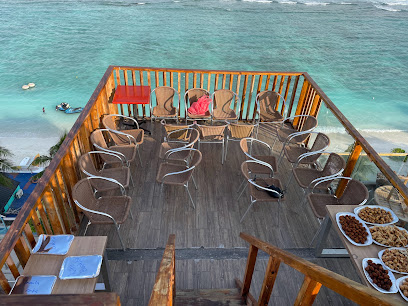
Riveli Beach Club & Restaurant
Discover culinary delights and breathtaking ocean views at Riveli Beach Club & Restaurant on the shores of Hulhumalé, Maldives.
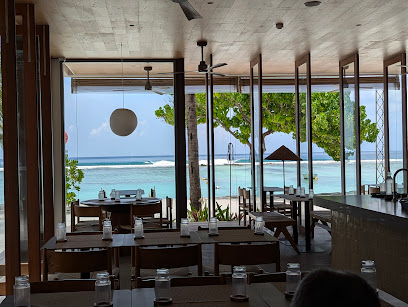
W Maldives Lounge
Discover W Maldives Lounge, a tranquil oasis on Hulhule Island, perfect for relaxing with stunning ocean views and refreshing drinks in the Maldives.
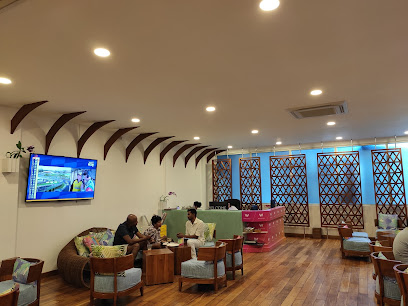
Reserve - Red Snapper and Coffee Beans
Experience the culinary magic of fresh seafood and aromatic coffee at Reserve - Red Snapper and Coffee Beans in Hulhumalé.
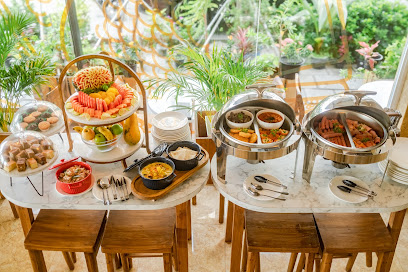
Malika El Shisha
Savor authentic Maldivian flavors at Malika El Shisha, a must-visit restaurant in the heart of Malé, blending tradition with contemporary dining.
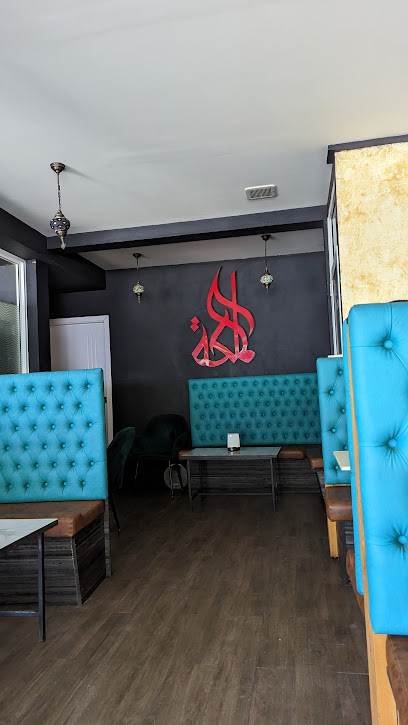
Juicy
Discover the vibrant flavors of Juicy, a bar and juice shop in Hulhumalé where refreshing drinks meet a lively atmosphere.
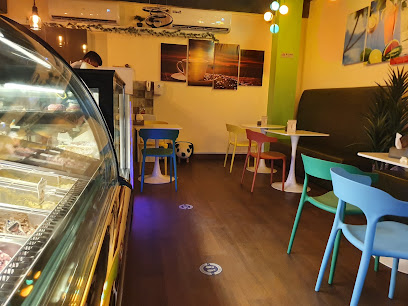
Lily Beach Resort & Spa Lounge
Discover tranquility at Lily Beach Resort & Spa Lounge, your perfect retreat in the Maldives with breathtaking views and refreshing delights.
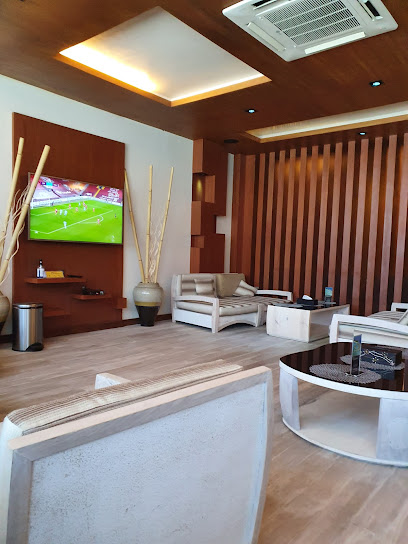
The Sand Bar
Discover a tropical oasis at The Sand Bar in Hulhumalé, where delicious cuisine meets breathtaking views in a laid-back atmosphere.
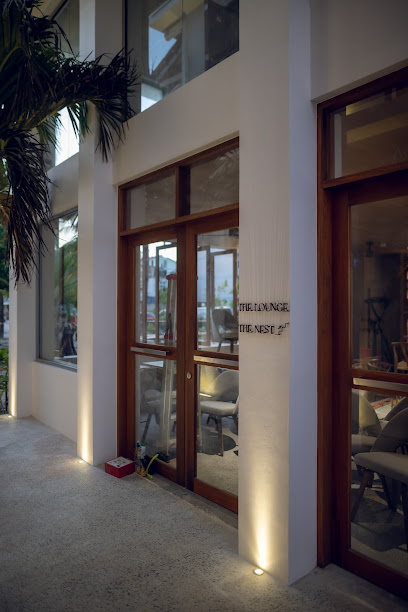
Kanneiy Baa
Discover the tranquility of Kanneiy Baa in Hulhumalé, your go-to lounge for karaoke and sheesha amidst a serene atmosphere.
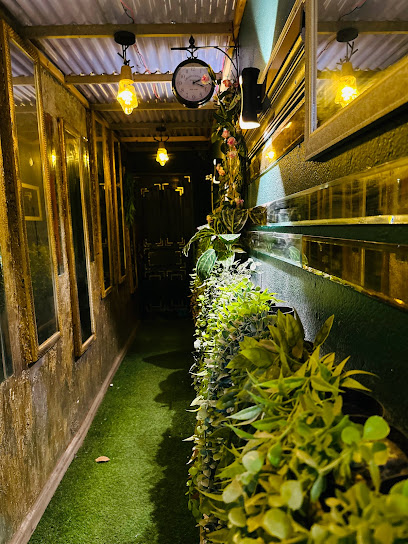
1000 Miles
Experience the vibrant flavors of the Maldives at 1000 Miles, a premier restaurant in Malé offering a unique culinary journey.

Parkside Kitchen & Bar
Experience the vibrant flavors of Maldivian cuisine at Parkside Kitchen & Bar, a must-visit restaurant in the heart of Malé.
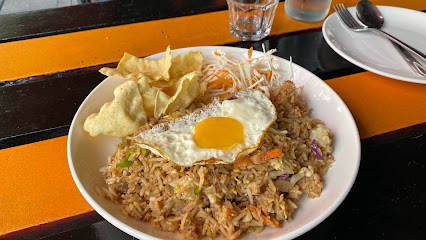
Jugo Bar
Discover the vibrant flavors of the Maldives at Jugo Bar, your go-to takeout destination for refreshing juices and light bites in Hulhumalé.
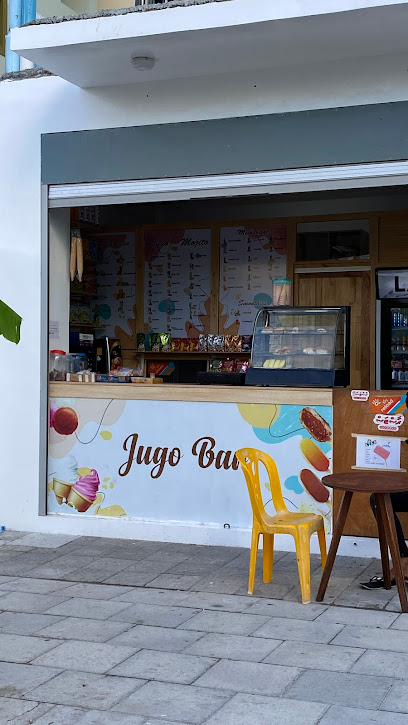
History of Hulhumalé Island
-
Hulhumalé is a reclaimed island located in the Maldives, specifically in the Kaafu Atoll. The project to create Hulhumalé began in 1997 with the aim of addressing the housing and commercial space shortages in Malé, the capital city. The island was created by reclaiming land from the sea, a process that involved extensive dredging and landfilling. The first phase of the reclamation was completed in 2002, adding approximately 188 hectares of land.
-
Hulhumalé was officially inaugurated on May 12, 2004. The island was envisioned as a modern urban center, featuring a mix of residential, commercial, and industrial zones. Early development focused on establishing basic infrastructure such as roads, utilities, and public services. The initial wave of residents began moving to Hulhumalé shortly after its inauguration, marking the start of a new chapter in Maldivian urban planning.
-
The design of Hulhumalé incorporates modern urban planning principles. It is divided into various sectors, each with specific purposes, including residential areas, commercial districts, and recreational zones. The island is also designed to be pedestrian-friendly, with wide sidewalks, parks, and public spaces. Hulhumalé aims to provide a high quality of life for its residents, with easy access to amenities and services.
-
The development of Hulhumalé has had a significant economic and social impact on the Maldives. It has alleviated the congestion in Malé, providing new housing options and opportunities for businesses. The island has also attracted investment in various sectors, including tourism, healthcare, and education. Hulhumalé is home to several key institutions, such as the Tree Top Hospital and the Maldives National University’s Faculty of Engineering.
-
Given its location in a fragile marine ecosystem, the development of Hulhumalé has included various environmental considerations. Efforts have been made to minimize the environmental footprint of the island, including the creation of green spaces and the implementation of waste management systems. Additionally, the island features coastal protection measures to guard against erosion and rising sea levels, which are significant concerns for the Maldives.
-
Hulhumalé is a melting pot of cultures, reflecting the diverse population of the Maldives. The island hosts various cultural events and festivals, celebrating Maldivian traditions and fostering a sense of community. Mosques, community centers, and cultural institutions play a crucial role in the social life of Hulhumalé’s residents. The island aims to preserve Maldivian heritage while embracing modernity and diversity.
-
The future of Hulhumalé looks promising, with ongoing and planned developments poised to transform the island further. Phase II of the reclamation project aims to expand the island’s area and accommodate even more residents and businesses. Future plans include the development of additional residential units, commercial centers, and recreational facilities, positioning Hulhumalé as a key urban hub in the Maldives.
Hulhumalé Island Essentials
-
Hulhumalé Island is located near the Malé International Airport (Velana International Airport). From the airport, you can take a short 20-minute ferry ride to Hulhumalé. Alternatively, you can opt for a taxi or a private transfer service, which will take you directly from the airport to the island.
-
Hulhumalé is a small island, making it easy to explore on foot or by bicycle. Public buses operate regularly around the island, providing an affordable and convenient option for getting around. Taxis are also available and can be hailed on the street or booked via phone. For a more private experience, consider renting a scooter or a car.
-
The official currency in Hulhumalé is the Maldivian Rufiyaa (MVR). Credit cards are widely accepted in most hotels, restaurants, and shops. However, it is advisable to carry some cash for smaller establishments and local markets. ATMs are available on the island for cash withdrawals.
-
Hulhumalé is generally a safe destination for tourists. However, it is always wise to take standard precautions. Avoid walking alone late at night in poorly lit areas and keep an eye on your belongings in crowded places. Although there are no specific high-crime areas targeting tourists, remaining vigilant is recommended.
-
In case of emergency, dial 119 for police assistance or 102 for medical emergencies. Hulhumalé has a well-equipped medical facility, the Hulhumalé Hospital, for any health-related issues. It is advisable to have travel insurance that covers medical emergencies. Pharmacies are also available for over-the-counter medications.
-
Fashion: Do dress modestly, especially in public areas and when visiting religious sites. Avoid wearing revealing clothing. Religion: Do respect local customs and traditions. Avoid public displays of affection. Public Transport: Do be respectful and keep noise levels down on public buses. Don't eat or drink on public transport. Greetings: Do greet people with a smile and a nod. A handshake is also acceptable but not necessary. Eating & Drinking: Do try local dishes and be respectful of the local dining etiquette. Don't drink alcohol in public places, as it is prohibited.
-
To experience Hulhumalé like a local, visit the local markets where you can buy fresh seafood and Maldivian goods. Engage with the locals, who are often friendly and willing to share insights about the island's culture and history. Don't miss a visit to the Hulhumalé Central Park, a popular spot for both tourists and locals. For a unique experience, explore the island's beautiful beaches and enjoy water activities such as snorkeling and diving.
Trending Landmarks in Hulhumalé Island
-
Bombay Darbar
-
Central Park (Hulhumalé)
-
h78 Maldives
-
Hulhumale
-
Republic Square
-
Hotel Ocean Grand at Hulhumale
-
UI Hotels
-
Huvan Beach Hotel
-
Turquoise Residence by UI
-
Hulhumale Watersports Club & Excursions/Seaholics Maldives/surf school
-
Vista Beach Retreat
-
Hulhumale Public Beach
-
Tsunami Monument
-
The White Harp Beach Hotel
-
Schwack Cinema Hulhumale'
Nearby Cities to Hulhumalé Island
-
Things To Do in Malé
-
Things To Do in Huraa
-
Things To Do in Thulusdhoo
-
Things To Do in Guraidhoo
-
Things To Do in Fulidhoo
-
Things To Do in Thoddoo
-
Things To Do in Ukulhas
-
Things To Do in Dhigurah
-
Things To Do in Maafushi
-
Things To Do in Trivandrum
-
Things To Do in Kanyakumari
-
Things To Do in Kochi
-
Things To Do in Bentota
-
Things To Do in Hikkaduwa
-
Things To Do in Colombo








